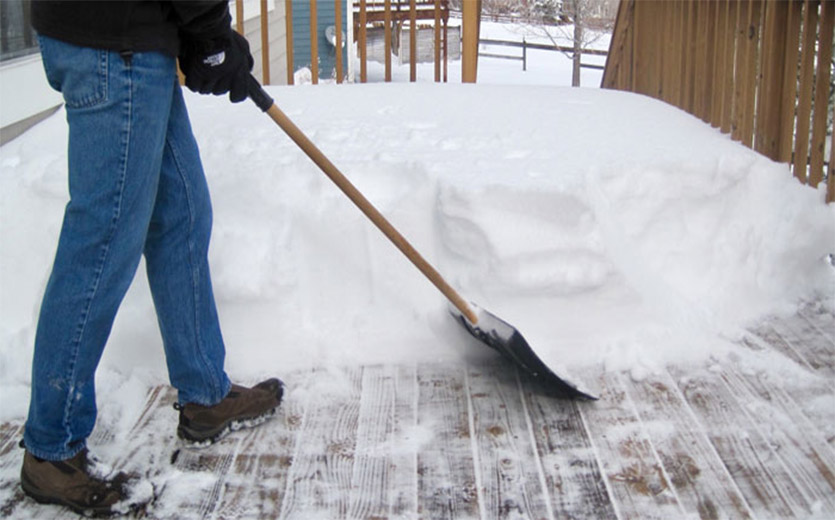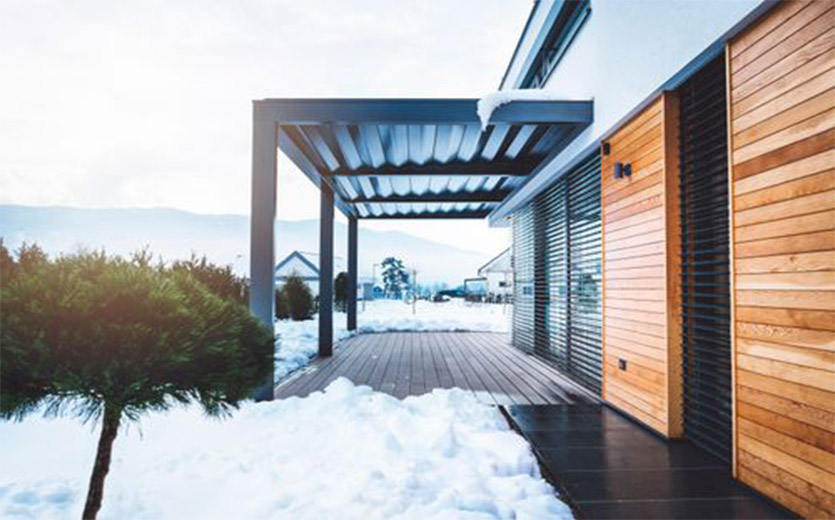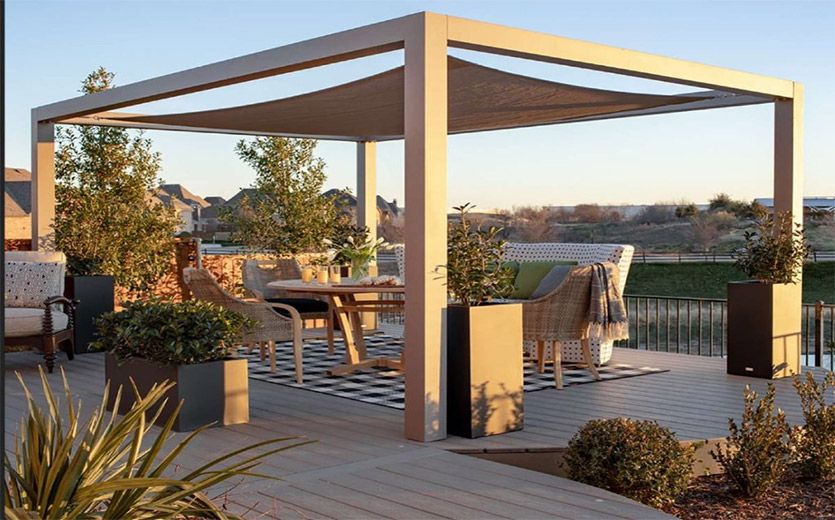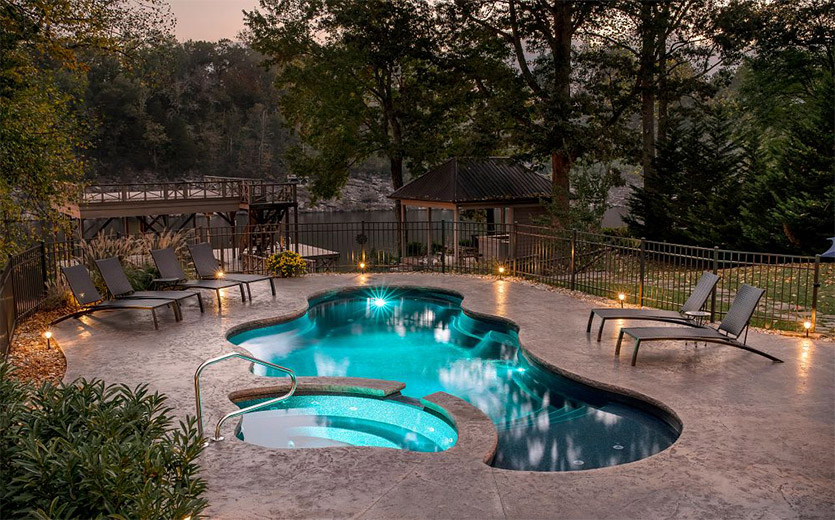
Your composite decking can add to the beauty of your home and add some value to it. A perfect outdoor space allows homeowners to enjoy a more enjoyable life. But it can also bring some worries, and winter can be a harsh season for your composite decking. Winter can bring the hassle of cleaning snow and ice in cold weather, and snow and ice can also cause wear and tear on your outdoor deck. While composite decking is very durable, that doesn’t mean you can leave them unattended in the snow and ice. If you clean and maintain your composite decking board regularly during the week, it will last for a long time to come. It is also especially important to take care of your deck in cold weather, especially in some of the harsher areas. In the long run, this will extend the life of your deck and save you more energy. But how to protect composite deck in the winter will be explained in detail.
How to protect composite deck in the winter
The cold and snow of winter can cause irreversible damage to your composite decking. Now that we have decided to protect the composite deck in the winter, let’s find out what to do.
Prompt cleaning
Dirt, leaves, and debris often show up on top of the deck. This may not seem like a big deal, but over time, dirt, leaves, and debris can build up in the middle of your deck and cleats. Water pooling on composite decking is not a good thing during the winter months when this debris and debris can easily form pools of water and mold.

Since composite decking materials contain wood fiber components. So moisture can also cause some damage to your deck. It can cause rot and cracking of the deck, as well as damage to other structures. This standing water can form ice during the cold winter months and make your composite decking more slippery. So please clean the top of your deck of debris and other debris in time for winter. Note that some fallen leaves may be hidden between the cracks of the deck, make sure you clean it thoroughly when you clean it.
Removing mold and mildew from your deck
It is a good decision to clean the deck of mold before winter. Mold can affect composite decking, and if not cleaned promptly, the thick mold can cause the deck to become wet. Although composite deck boards have a protective plastic layer, mold can still cause the deck to rot.
Mold cleanup is also very simple and you can use common tools at home to clean it. The mold can be easily treated with a composite deck cleaning brush and a garden hose. For some stubborn mold, you can use mold solvent or pressure-wash composite decking. Use a sprayer to spray a generous amount of mold solvent on the surface of the deck, let it sit for 10-15 minutes, and then use a cleaning brush to scrub the deck. Always make sure to rinse composite decking boards immediately after scrubbing and do not use any chlorine bleach products. Chlorine bleach can cause damage to plants around the deck, as well as accelerate the corrosion of deck fasteners and metal.
Inspect the deck
Before the weather gets colder, it is essential to conduct an inspection of composite decking. A thorough inspection of the deck will identify any problems in time. Check the surfaces and seams to find possible hidden weak points. If the deck appears to be rotting, it is very easy to find the problem. You should also check the composite decking fasteners as well as the frame. If they appear to be loose please tighten or replace them promptly. These problems may damage your deck during the winter.

Sealing composite decking
Sealing the deck is also a way to cope with the harsh winter. It will make your winter cleaning easier. Keep your deck from fading, and effectively solve the problem of mold and mildew on your deck surface. Sealing your deck has some benefits, but it is important to note that you must reseal it regularly to keep it looking good. This is why sealing composite decking is not recommended.
Clear snow and ice in a timely manner
What do you need to do during the really cold season? Can I use salt on composite decking? Can I put ice melt on the composite decking? These questions will be answered below.
Snow and ice are very common during the harsh winter months. For some light snow and ice, you can use a broom to clean and handle it or use a snowblower for composite decks. These ways can easily clear the snowflakes on the deck and not damage the composite decks.
If the snowfall is heavier, you will need to use a shovel to remove the ice from the deck surface. Remember to use a plastic shovel instead of a metal shovel and sharp objects. This will not scratch your deck and will clear the ice effectively. Always shovel along the grain of the deck to remove snow and ice.
Using ice melt for composite decking is a very effective way to do this. However, make sure that the ice melt does not contain any chemicals that could seriously damage the surface of the deck. Spray the ice melt on the surface of the deck and clean it up as soon as the ice melts. Ice melt can easily melt snow and ice and will not corrode your deck.
When it comes to melting snow and ice, your first thought is probably to use rock salt. Rock salt is indeed a way to melt snow and ice, but you need to rinse the rock salt from the composite decking surface as soon as possible. Because it may damage the surface of the deck and cause some irreversible effects.

| Contrast | Ice Melter | Rock Salt |
| Price (50 lbs) | $15-$35 | $10-$20 |
| Applicable temperature | -15 degrees F | 5 degrees F |
| Pros | Safer, quicker to work | Cheaper |
| Cons | More expensive | Cannot be used at low temperatures, irritating |
Conclusion
Protecting your composite deck board in the winter is easy if you use the right precautions. Regular cleaning, timely inspection, timely snow, and ice removal, or sealing the deck. These are all ways that you can ensure that your deck stays in good condition.
With these simple steps, you can effectively protect your composite deck in the winter and make it the perfect building for your house. Protecting your deck can ensure the longevity of your outdoor space and allow you to enjoy it better for years to come.




Post a Comment